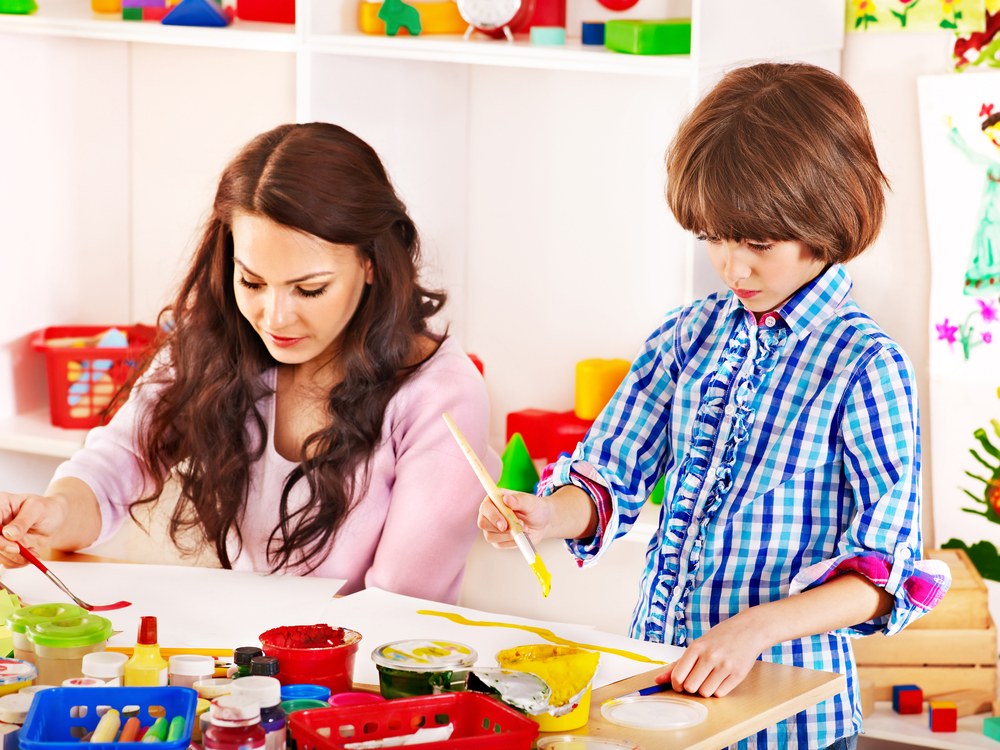Reading skills improvement Normal Worksheets for 3-Year-Olds
4 filtered results
-
From - To
Boost your child's reading skills with our engaging worksheets designed specifically for 3-year-olds! Our "Reading Skills Improvement Normal Worksheets" offer a fun and interactive way to nurture early literacy. Carefully crafted, these worksheets encourage letter recognition, vocabulary expansion, and phonemic awareness through playful activities. Each sheet is tailored to meet the developmental milestones of young learners, making it easy for parents and educators to foster a love for reading. From matching letters to engaging story prompts, our resources pave the way for your child's future success in reading. Explore our collection today and watch your little ones thrive in their reading journey!
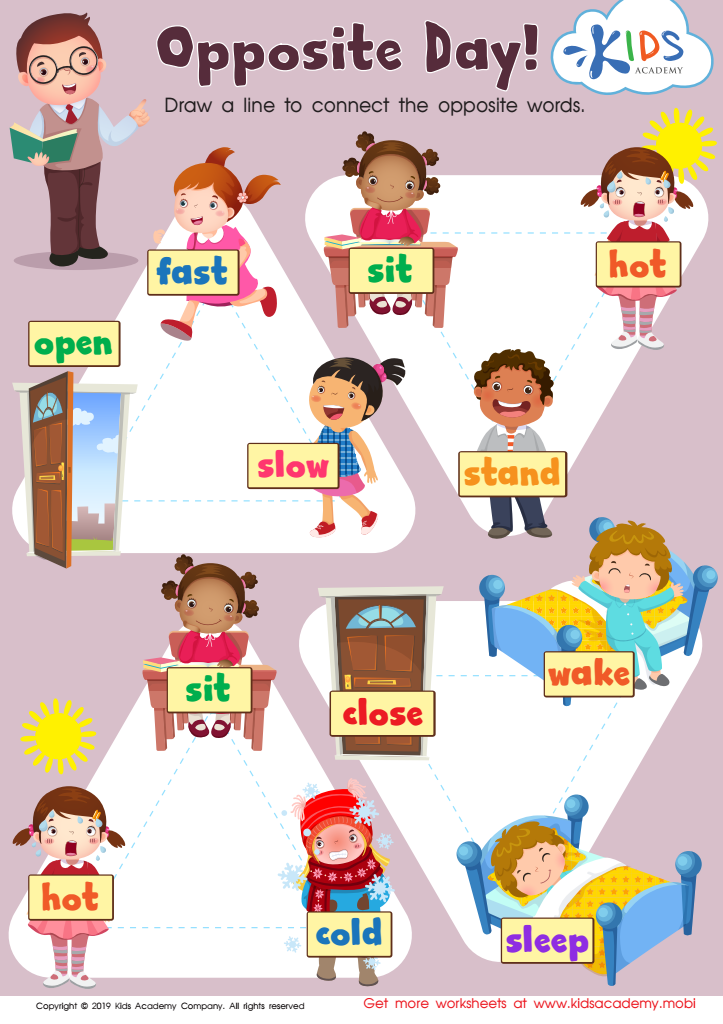

Opposite Day Worksheet
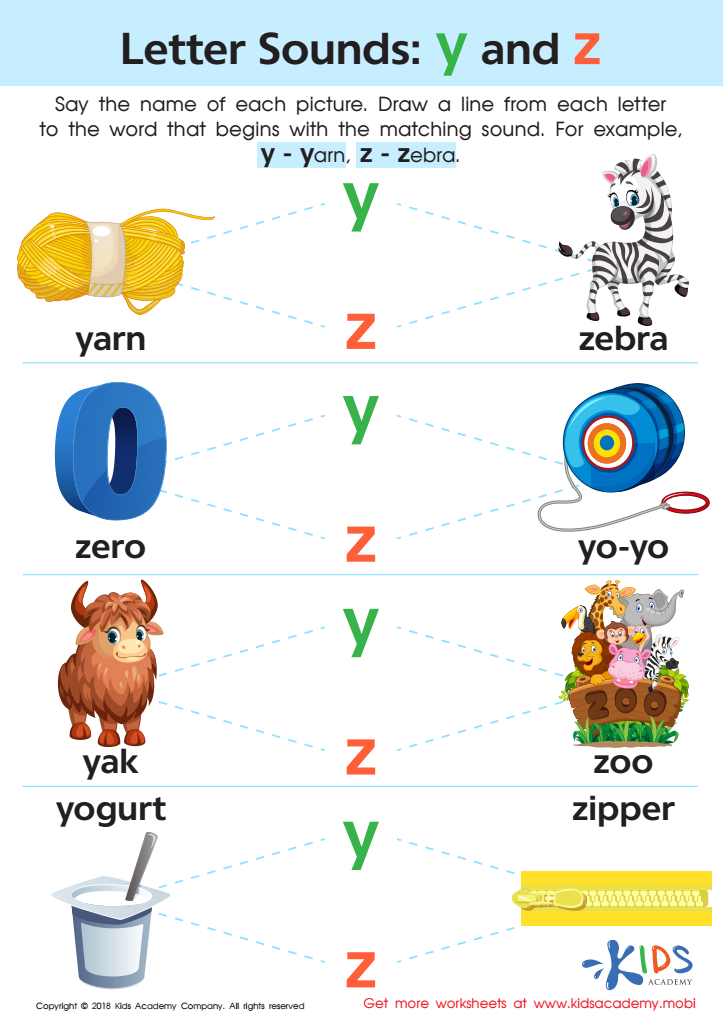

Letter Y and Z Sounds Worksheet
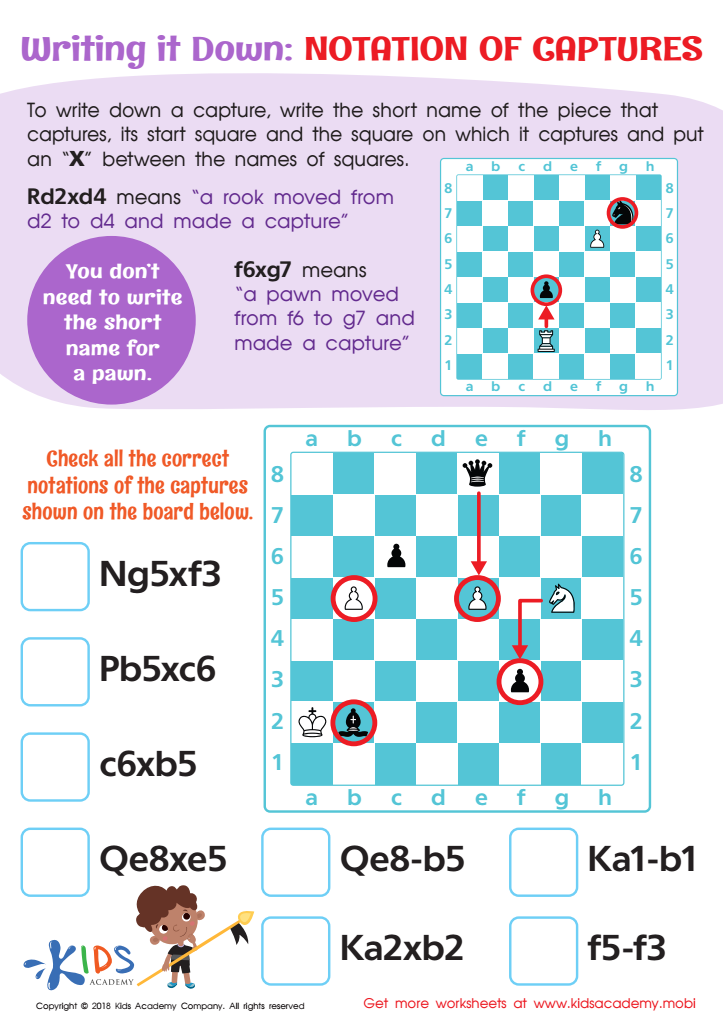

Notation of Captures Writing it Down Worksheet
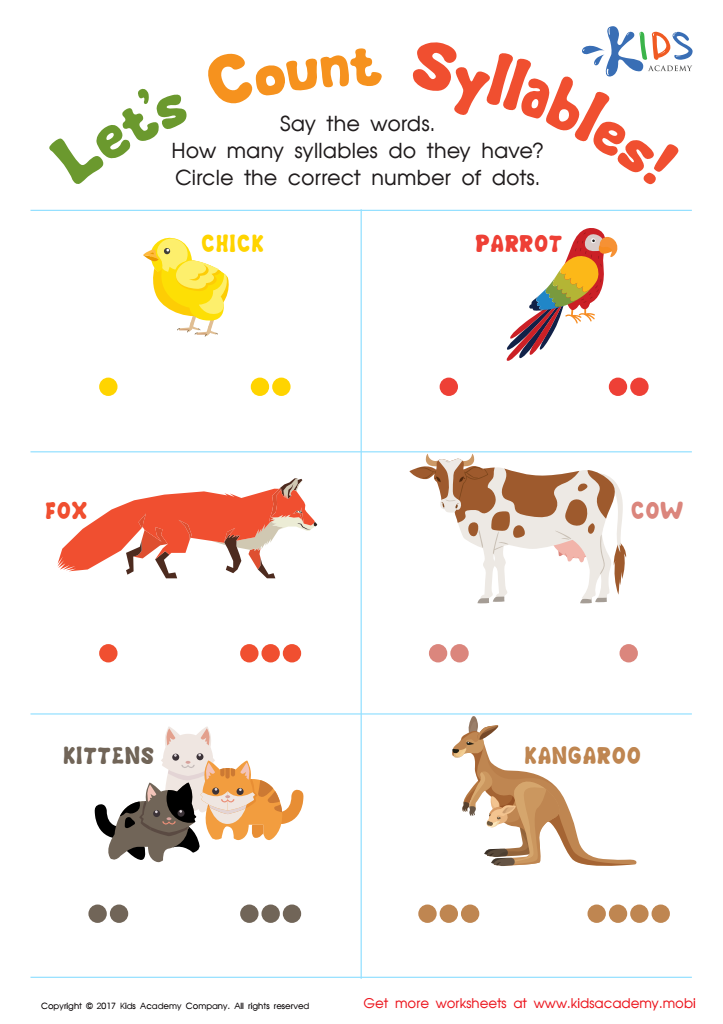

Lets Count Syllables Worksheet
The development of reading skills in 3-year-olds is crucial for several reasons, making it a priority for parents and teachers. At this early stage, children are like sponges, absorbing information and skills that lay the groundwork for future learning. Early reading exposure enhances cognitive development, improves vocabulary, and fosters a strong love for books, which are foundational for academic success.
Research shows that early reading helps develop essential listening and comprehension skills. Engaging with stories not only entertains but also promotes critical thinking, imagination, and creativity. Additionally, strong reading skills correlate with later academic achievement, as children who are introduced to reading early are more likely to excel in school.
Parents and teachers should create a print-rich environment, read aloud regularly, and engage toddlers with interactive materials. This will not only enhance their literacy skills but also strengthen emotional bonds through shared reading experiences. By prioritizing reading in early childhood, caregivers help to nurture well-rounded individuals who are curious and eager to learn, setting them on the path to lifelong learning and success. Therefore, investing time in developing reading skills can have lasting impacts on a child's educational journey and self-esteem.
 Assign to My Students
Assign to My Students





